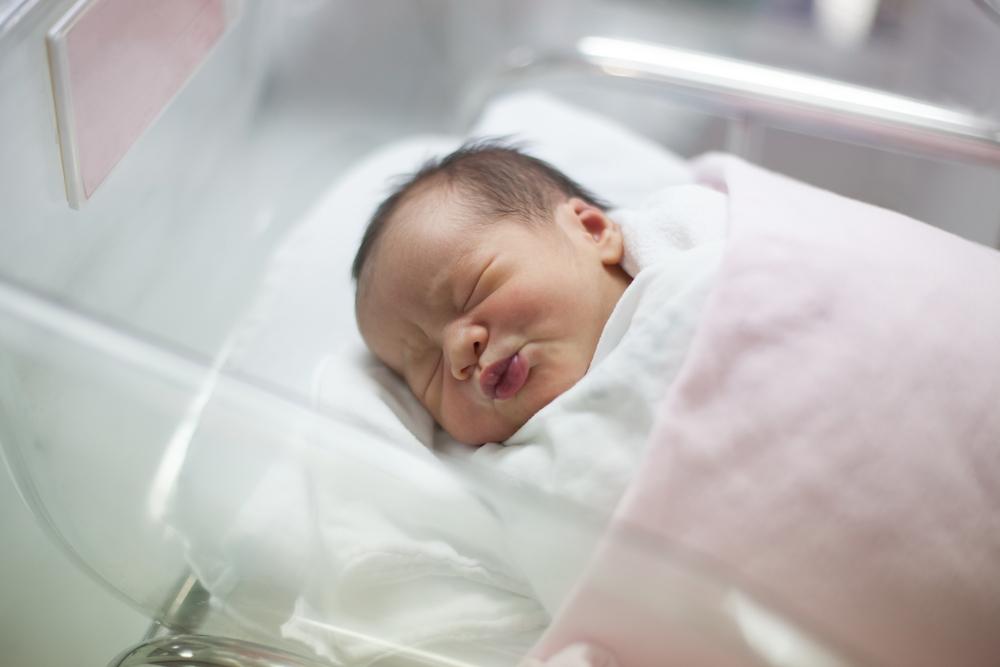How important is breast milk and delivery method to a newborn’s health?
An infant in a delivery room.
A baby in the womb is protected from most microorganisms. But when that baby enters the outside world, it’s greeted by a welcoming committee of bacteria. Now researchers are trying to sort out what effect, factors like an infant’s delivery method and early diet have on its community of microorganisms.
“[Newborn] babies are essentially sterile,” says Dartmouth-Hitchcock Medical Center neonatologist and pediatrician Juliette Madan. “They do interact with a quite a large bolus of bacteria at the time of delivery and for babies who are delivered by cesarean section, their first introduction to these large boluses of microbes are through the skin of their mom and the skin of the people in the operating room, and ultimately all the nurses and doctors and their family that handles them.”
Babies’ microbiomes — essentially the microorganisms that collect around the body — have a big influence on their overall health. But babies who are delivered vaginally are exposed to a unique set of bacteria that is especially good for their health.
“They're exposed to a large bolus of vaginal microbes that have evolved over time to be particularly health-promoting for babies,” says Madan. “[They] get a very large bolus of lactobacillus in particular that is very helpful with babies so that they can digest their breast milk.”
And when it comes to whether or not a baby is fed breast milk or formula, Madan says that makes a difference to babies’ microbiomes too.
“We expected there to be a difference between the exclusively breastfed babies and the exclusively formula-fed babies in terms of their gut microbiome composition, but what we weren't sure about was whether the combination-fed babies would be somewhere in between or if they would look more like the exclusively breastfed babies or the formula-fed babies in terms of their gut microbiome composition,” says Madan. “We were a bit surprised to find out that babies fed both breast milk and formula had gut microbiome that resembled that of the babies that were fed exclusively formula, and that exclusive breastfeeding was associated with a rather unique gut microbiome composition.”
It’s no secret that there are profound short- and long-term health benefits to breastfeeding babies. But Madan and her colleague Anne Hoen, assistant professor of epidemiology and of biomedical data science at the Geisel School of Medicine at Dartmouth College, are hoping to discover what the exact mechanisms behind the health benefits of breast milk exposure might be.
“We're just starting to understand, with research like ours, some of the mechanisms behind why the biology of breast milk exposure is important,” says Madan. “Our study today is simply defining what exposures shape the microbiome in an infant’s gut in a healthy population.”
Madan and Hoen have set up a large birth study in New Hampshire that will eventually involve some 1,500 mothers and babies. They hope their research will give healthcare providers important information to support mothers in breastfeeding their children. They have even discussed coming up with a way to give C-section babies a dose of maternal vaginal microflora.
“Breast milk is very exciting to study,” says Hoen. “We're starting to understand more and more about the health benefits of breast milk and the mechanism behind these health benefits. But breast milk is not just nutrition for babies it's also a very important transfer of mom’s immune system and her strength to her baby directly. So when babies are delivered, their immune system is very immature … they're unable to fight off pathogens … so mom is transferring immune cells, she’s transferring white cells, t-cells, immunoglobulins. But there are also important bacteria that she's transferring that are health promoting for her baby as well.”
This article is based on an interview that aired on PRI's Science Friday.
